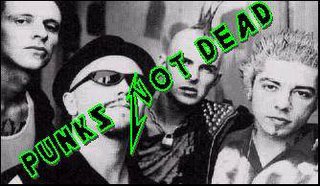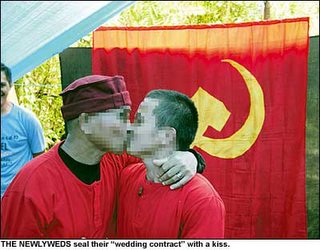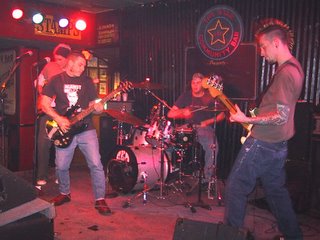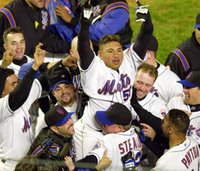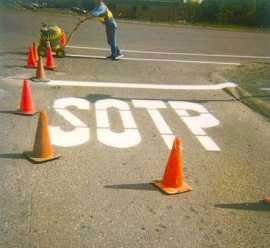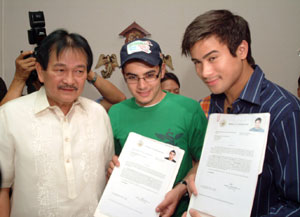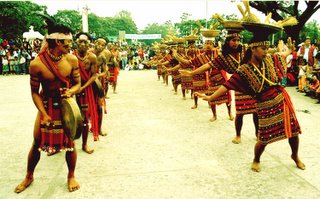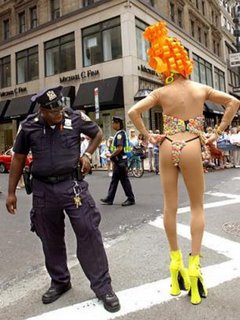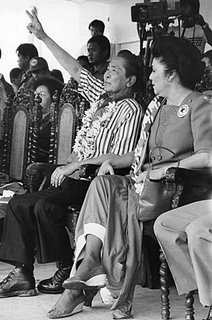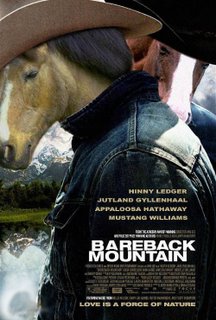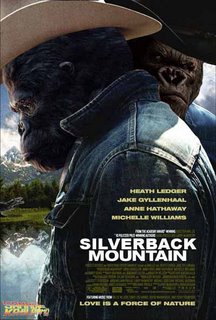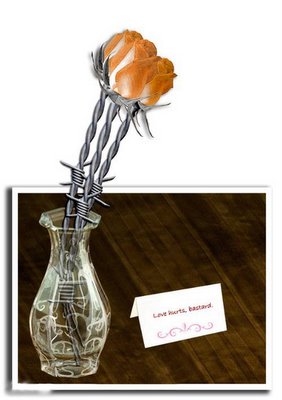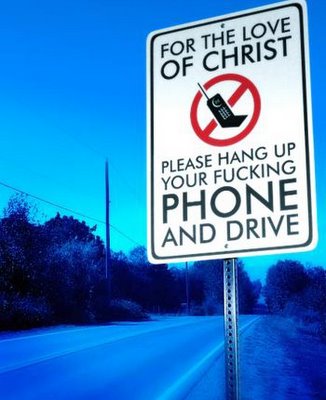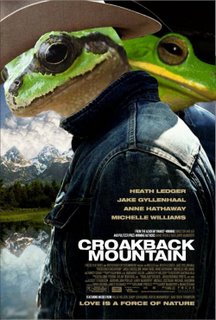
They got the big tent up on the Forest Service’s platform, the kitchen and grub boxes secured. Both slept in camp that first night, Jack already bitching about Joe Aguirre’s sleep-with-the-sheep-and-no-fire order, though he saddled the bay mare in the dark morning without saying much. Dawn came glassy orange, stained from below by a gelatinous band of pale green. The sooty bulk of the mountain paled slowly until it was the same color as the smoke from Ennis’s breakfast fire. The cold air sweetened, banded pebbles and crumbs of soil cast sudden pencil-long shadows and the rearing lodgepole pines below them massed in slabs of somber malachite.
During the day Ennis looked across a great gulf and sometimes saw Jack, a small dot moving across a high meadow as an insect moves across a tablecloth; Jack, in his dark camp, saw Ennis as night fire, a red spark on the huge black mass of mountain.
Jack came lagging in late one afternoon, drank his two bottles of beer cooled in a wet sack on the shady side of the tent, ate two bowls of stew, four of Ennis’s stone biscuits, a can of peaches, rolled a smoke, watched the sun drop.
“I’m commutin four hours a day,” he said morosely. “Come in for breakfast, go back to the sheep, evenin get em bedded down, come in for supper, go back to the sheep, spend half the night jumpin up and checkin for coyotes. By rights I should be spendin the night here. Aguirre got no right a make me do this.”
“You want a switch?” said Ennis. “I wouldn’t mind herdin. I wouldn’t mind sleepin out there.”
“That ain’t the point. Point is, we both should be in this camp. And that goddamn pup tent smells like cat piss or worse.”
“Wouldn’t mind bein out there.”
“Tell you what, you got a get up a dozen times in the night out there over them coyotes. Happy to switch but give you warnin I can’t cook worth a shit. Pretty good with a can opener.”
“Can’t be no worse than me, then. Sure, I wouldn’t mind a do it.”
They fended off the night for an hour with the yellow kerosene lamp and around ten Ennis rode Cigar Butt, a good night horse, through the glimmering frost back to the sheep, carrying leftover biscuits, a jar of jam and a jar of coffee with him for the next day saying he’d save a trip, stay out until supper.
“Shot a coyote just first light,” he told Jack the next evening, sloshing his face with hot water, lathering up soap and hoping his razor had some cut left in it, while Jack peeled potatoes. “Big son of a bitch. Balls on him size a apples. I bet he’d took a few lambs. Looked like he could a eat a camel. You want some a this hot water? There’s plenty.”
“It’s all yours.”
“Well, I’m goin a warsh everthing I can reach,” he said, pulling off his boots and jeans (no drawers, no socks, Jack noticed), slopping the green washcloth around until the fire spat.
They had a high-time supper by the fire, a can of beans each, fried potatoes and a quart of whiskey on shares, sat with their backs against a log, boot soles and copper jeans rivets hot, swapping the bottle while the lavender sky emptied of color and the chill air drained down, drinking, smoking cigarettes, getting up every now and then to piss, firelight throwing a sparkle in the arched stream, tossing sticks on the fire to keep the talk going, talking horses and rodeo, roughstock events, wrecks and injuries sustained, the submarine Thresher lost two months earlier with all hands and how it must have been in the last doomed minutes, dogs each had owned and known, the draft, Jack’s home ranch where his father and mother held on, Ennis’s family place folded years ago after his folks died, the older brother in Signal and a married sister in Casper. Jack said his father had been a pretty well known bullrider years back but kept his secrets to himself, never gave Jack a word of advice, never came once to see Jack ride, though he had put him on the woolies when he was a little kid.
Ennis said the kind of riding that interested him lasted longer than eight seconds and had some point to it. Money’s a good point, said Jack, and Ennis had to agree. They were respectful of each other’s opinions, each glad to have a companion where none had been expected. Ennis, riding against the wind back to the sheep in the treacherous, drunken light, thought he’d never had such a good time, felt he could paw the white out of the moon.
The summer went on and they moved the herd to new pasture, shifted the camp; the distance between the sheep and the new camp was greater and the night ride longer. Ennis rode easy, sleeping with his eyes open, but the hours he was away from the sheep stretched out and out. Jack pulled a squalling burr out of the harmonica, flattened a little from a fall off the skittish bay mare, and Ennis had a good raspy voice; a few nights they mangled their way through some songs. Ennis knew the salty words to “Strawberry Roan.” Jack tried a Carl Perkins song, bawling “what I say-ay-ay,” but he favored a sad hymn, “Water-Walking Jesus,” learned from his mother who believed in the Pentecost, that he sang at dirge slowness, setting off distant coyote yips.
“Too late to go out to them damn sheep,” said Ennis, dizzy drunk on all fours one cold hour when the moon had notched past two. The meadow stones glowed white-green and a flinty wind worked over the meadow, scraped the fire low, then ruffled it into yellow silk sashes. “Got you a extra blanket I’ll roll up out here and grab forty winks, ride out at first light.”
“Freeze your ass off when that fire dies down. Better off sleepin in the tent.”
“Doubt I’ll feel nothin.” But he staggered under canvas, pulled his boots off, snored on the ground cloth for a while, woke Jack with the clacking of his jaw.
“Jesus Christ, quit hammerin and get over here. Bedroll’s big enough,” said Jack in an irritable sleep-clogged voice. It was big enough, warm enough, and in a little while they deepened their intimacy considerably. Ennis ran full- throttle on all roads whether fence mending or money spending, and he wanted none of it when Jack seized his left hand and brought it to his erect cock. Ennis jerked his hand away as though he’d touched fire, got to his knees, unbuckled his belt, shoved his pants down, hauled Jack onto all fours and, with the help of the clear slick and a little spit, entered him, nothing he’d done before but no instruction manual needed. They went at it in silence except for a few sharp intakes of breath and Jack’s choked “gun’s goin off,” then out, down, and asleep.
Ennis woke in red dawn with his pants around his knees, a top-grade headache, and Jack butted against him; without saying anything about it both knew how it would go for the rest of the summer, sheep be damned.
As it did go. They never talked about the sex, let it happen, at first only in the tent at night, then in the full daylight with the hot sun striking down, and at evening in the fire glow, quick, rough, laughing and snorting, no lack of noises, but saying not a goddamn word except once Ennis said, “I’m not no queer,” and Jack jumped in with “Me neither. A one-shot thing. Nobody’s business but ours.” There were only the two of them on the mountain flying in the euphoric, bitter air, looking down on the hawk’s back and the crawling lights of vehicles on the plain below, suspended above ordinary affairs and distant from tame ranch dogs barking in the dark hours. They believed themselves invisible, not knowing Joe Aguirre had watched them through his 10x42 binoculars for ten minutes one day, waiting until they’d buttoned up their jeans, waiting until Ennis rode back to the sheep, before bringing up the message that Jack’s people had sent word that his uncle Harold was in the hospital with pneumonia and expected not to make it. Though he did, and Aguirre came up again to say so, fixing Jack with his bold stare, not bothering to dismount.
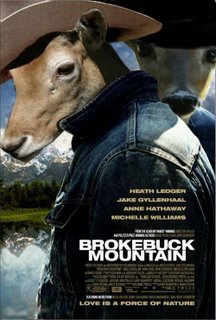
In August Ennis spent the whole night with Jack in the main camp and in a blowy hailstorm the sheep took off west and got among a herd in another allotment. There was a damn miserable time for five days, Ennis and a Chilean herder with no English trying to sort them out, the task almost impossible as the paint brands were worn and faint at this late season. Even when the numbers were right Ennis knew the sheep were mixed. In a disquieting way everything seemed mixed.
The first snow came early, on August thirteenth, piling up a foot, but was followed by a quick melt. The next week Joe Aguirre sent word to bring them down-- another, bigger storm was moving in from the Pacific -- and they packed in the game and moved off the mountain with the sheep, stones rolling at their heels, purple cloud crowding in from the west and the metal smell of coming snow pressing them on. The mountain boiled with demonic energy, glazed with flickering broken-cloud light, the wind combed the grass and drew from the damaged krummholz and slit rock a bestial drone. As they descended the slope Ennis felt he was in a slow-motion, but headlong, irreversible fall.
Joe Aguirre paid them, said little. He had looked at the milling sheep with a sour expression, said, “Some a these never went up there with you.” The count was not what he’d hoped for either. Ranch stiffs never did much of a job.
“You goin a do this next summer?” said Jack to Ennis in the street, one leg already up in his green pickup. The wind was gusting hard and cold.
“Maybe not.” A dust plume rose and hazed the air with fine grit and he squinted against it. “Like I said, Alma and me’s gettin married in December. Try to get somethin on a ranch. You?” He looked away from Jack’s jaw, bruised blue from the hard punch Ennis had thrown him on the last day.
“If nothin better comes along. Thought some about going back up to my daddy’s place, give him a hand over the winter, then maybe head out for Texas in the spring. If the draft don’t get me.”
“Well, see you around, I guess.” The wind tumbled an empty feed bag down the street until it fetched up under his truck.
“Right,” said Jack, and they shook hands, hit each other on the shoulder, then there was forty feet of distance between them and nothing to do but drive away in opposite directions. Within a mile Ennis felt like someone was pulling his guts out hand over hand a yard at a time. He stopped at the side of the road and, in the whirling new snow, tried to puke but nothing came up. He felt about as bad as he ever had and it took a long time for the feeling to wear off.
In December Ennis married Alma Beers and had her pregnant by mid-January. He picked up a few short-lived ranch jobs, then settled in as a wrangler on the old Elwood Hi-Top place north of Lost Cabin in Washakie County. He was still working there in September when Alma Jr., as he called his daughter, was born and their bedroom was full of the smell of old blood and milk and baby shit, and the sounds were of squalling and sucking and Alma’s sleepy groans, all reassuring of fecundity and life’s continuance to one who worked with livestock.
When the Hi-Top folded they moved to a small apartment in Riverton up over a laundry. Ennis got on the highway crew, tolerating it but working weekends at the Rafter B in exchange for keeping his horses out there. The second girl was born and Alma wanted to stay in town near the clinic because the child had an asthmatic wheeze.
“Ennis, please, no more damn lonesome ranches for us,” she said, sitting on his lap, wrapping her thin, freckled arms around him. “Let’s get a place here in town?”
“I guess,” said Ennis, slipping his hand up her blouse sleeve and stirring the silky armpit hair, then easing her down, fingers moving up her ribs to the jelly breast, over the round belly and knee and up into the wet gap all the way to the north pole or the equator depending which way you thought you were sailing, working at it until she shuddered and bucked against his hand and he rolled her over, did quickly what she hated. They stayed in the little apartment which he favored because it could be left at any time.
The fourth summer since Brokeback Mountain came on and in June Ennis had a general delivery letter from Jack Twist, the first sign of life in all that time.
Friend this letter is a long time over due. Hope you get it.
Heard you was in Riverton. Im coming thru on the 24th,
thought Id stop and buy you a beer Drop mea line if you
can, say if your there.
The return address was Childress, Texas. Ennis wrote back, you bet, gave the Riverton address.
The day was hot and clear in the morning, but by noon the clouds had pushed up out of the west rolling a little sultry air before them. Ennis, wearing his best shirt, white with wide black stripes, didn’t know what time Jack would get there and so had taken the day off, paced back and forth, looking down into a street pale with dust. Alma was saying something about taking his friend to the Knife & Fork for supper instead of cooking it was so hot, if they could get a baby-sitter, but Ennis said more likely he’d just go out with Jack and get drunk. Jack was not a restaurant type, he said, thinking of the dirty spoons sticking out of the cans of cold beans balanced on the log.
Late in the afternoon, thunder growling, that same old green pickup rolled in and he saw Jack get out of the truck, beat-up Resistol tilted back. A hot jolt scalded Ennis and he was out on the landing pulling the door closed behind him. Jack took the stairs two and two. They seized each other by the shoulders, hugged mightily, squeezing the breath out of each other, saying, son of a bitch, son of a bitch, then, and easily as the right key turns the lock tumblers, their mouths came together, and hard, Jack’s big teeth bringing blood, his hat falling to the floor, stubble rasping, wet saliva welling, and the door opening and Alma looking out for a few seconds at Ennis’s straining shoulders and shutting the door again and still they clinched, pressing chest and groin and thigh and leg together, treading on each other’s toes until they pulled apart to breathe and Ennis, not big on endearments, said what he said to his horses and daughters, little darlin.
The door opened again a few inches and Alma stood in the narrow light.
What could he say? “Alma, this is Jack Twist, Jack, my wife Alma.” His chest was heaving. He could smell Jack -- the intensely familiar odor of cigarettes, musky sweat and a faint sweetness like grass, and with it the rushing cold of the mountain. “Alma,” he said, “Jack and me ain’t seen each other in four years.” As if it were a reason. He was glad the light was dim on the landing but did not turn away from her.
“Sure enough,” said Alma in a low voice. She had seen what she had seen. Behind her in the room lightning lit the window like a white sheet waving and the baby cried.
“You got a kid?” said Jack. His shaking hand grazed Ennis’s hand, electrical current snapped between them.
“Two little girls,” Ennis said. “Alma Jr. and Francine. Love them to pieces.” Alma’s mouth twitched.
“I got a boy,” said Jack. “Eight months old. Tell you what, I married a cute little old Texas girl down in Childress -- Lureen.” From the vibration of the floorboard on which they both stood Ennis could feel how hard Jack was shaking.
“Alma,” he said. “Jack and me is goin out and get a drink. Might not get back tonight, we get drinkin and talkin.”
“Sure enough,” Alma said, taking a dollar bill from her pocket. Ennis guessed she was going to ask him to get her a pack of cigarettes, bring him back sooner.
“Please to meet you,” said Jack, trembling like a run-out horse.
“Ennis -- “ said Alma in her misery voice, but that didn’t slow him down on the stairs and he called back, “Alma, you want smokes there’s some in the pocket a my blue shirt in the bedroom.”
They went off in Jack’s truck, bought a bottle of whiskey and within twenty minutes were in the Motel Siesta jouncing a bed. A few handfuls of hail rattled against the window followed by rain and slippery wind banging the unsecured door of the next room then and through the night.
The room stank of semen and smoke and sweat and whiskey, of old carpet and sour hay, saddle leather, shit and cheap soap. Ennis lay spread-eagled, spent and wet, breathing deep, still half tumescent, Jack blowing forceful cigarette clouds like whale spouts, and Jack said, “Christ, it got a be all that time a yours ahorseback makes it so goddamn good. We got to talk about this. Swear to god I didn’t know we was goin a get into this again -- yeah, I did. Why I’m here. I fuckin knew it. Redlined all the way, couldn’t get here fast enough.”
